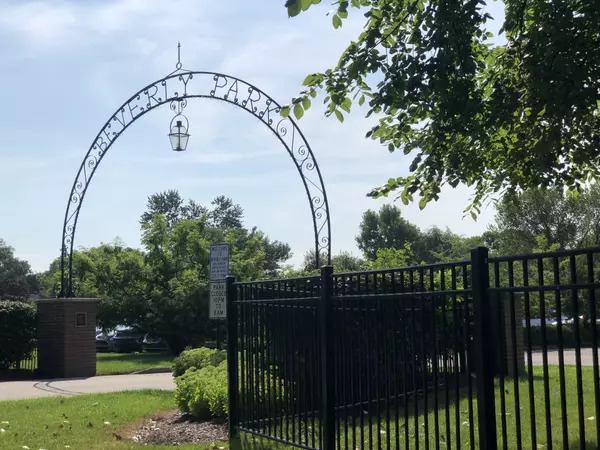

Quick Fixes, Big Wins: Elevate Your Home's Value & Appeal
In our neighborhoods of Birmingham and Bloomfield Hills, Michigan, making your home stand out is not just a wish—it's a necessity. And the secret to achieving this might be simpler than you think. Small repairs and updates can significantly enhance your home's appeal, potentially expediting the sale process and even increasing your final sale price. Let me show you how minor tweaks can lead to major rewards for you. The Power of First Impressions First impressions are paramount in real estate. A well-maintained home not only captures attention but also screams 'value' to prospective buyers. Homes in pristine condition tend to sell faster and command higher prices. The reason is straightforward: buyers are often willing to pay a premium for a home that feels move-in ready, saving them from the hassle and expense of immediate repairs. Minor Repairs with Major Impact Fix Leaky Faucets: That dripping tap is more than just a nuisance—it signals to potential buyers that there might be underlying plumbing issues. Addressing leaks is a straightforward and cost-effective way to eliminate such concerns.Update Lighting Fixtures: Dated lighting can make your space feel dark and unwelcoming. By installing modern fixtures, you can brighten up your home, making it feel more inviting and spacious.Repaint Walls: Opt for neutral colors to create a blank canvas, allowing buyers to easily envision their lives in your home. A fresh coat of paint can transform any space, making it feel refreshed and updated.- **Replace Outdated Hardware:** It's all in the details. Swapping out old hardware in your kitchen and bathrooms can instantly modernize the entire room without a full remodel. The Value of Being Move-In Ready Why do these updates matter? Together, they underscore your home's maintenance and care. This perception is invaluable. You want buyers to walk through your door and see a home that's ready to welcome them, without the burden of immediate work. It's not just about aesthetics; it's about providing peace of mind. A move-in-ready home isn't just appealing—it's a relief to buyers who are eager to start their new life without unexpected surprises. Your Home, Optimized for Sale At Higgins Partners brokered by Real Broker, LLC, we specialize in selling homes in the Birmingham and Bloomfield Hills area. Our proprietary selling system, The Sold Solution, is tailored to optimize your home's appeal and value, ensuring a quick and successful sale. For homeowners aiming to make their property the next coveted listing, remember, the journey to success doesn't always require grand gestures. Often, it's the small updates and repairs that truly make a difference. Are you interested in learning more about how The Sold Solution can work for you? Ready to make your home the envy of the market? Contact Jeff Higgins, today at (248) 233-6165 or jeff@higginspartners.com. Let's embark on your home selling journey together, ensuring it's as rewarding as possible with minimal effort for maximum returns.
Read More

3 Powerful Reasons to Stage Your Home
In the competitive world of real estate, especially here in Birmingham and Bloomfield Hills, first impressions are everything. As we navigate through the nuances of selling houses and condos, the practice of home staging emerges as a key strategy. Supported by compelling statistics from the Real Estate Staging Association (RESA) and the National Association of Realtors (NAR), the benefits of home staging are undeniable and we highly recommend it for most homesellers. Let's delve into three key advantages of staging your home for sale, aiming to both shorten the time it takes to sell your home and significantly increase your home's value and maximize your hard earned home equity. 1. Enhanced First Impression Leads to a Quicker Sale A well-staged home speaks volumes, offering an inviting snapshot of potential life within its walls. In today’s digital age, where 99% of millennials commence their home search online, photographs of a beautifully staged home can captivate interest instantly. The meticulous arrangement and decor of key rooms such as the living room, kitchen, primary bedroom, and dining room paint a picture of your home that's not just lived in, but loved. According to Realtor.com, staged homes sell an astonishing 88% faster than non-staged counterparts. This rapid sales cycle benefits sellers immensely, reducing the time and expenses associated with keeping a property on the market. 2. Maximizing Sale Price The financial incentives for home staging are compelling. Statistics reveal that most home sellers achieve a return of over 400% on their investment in professional staging. Furthermore, 85% of staged homes sell for 5-23% over the asking price. This considerable increase is not just about making your home look aesthetically pleasing; it’s about strategic marketing. By staging your home, you as a homeseller can effectively highlight your home's strengths and downplay its weaknesses, making it more appealing to a wider array of buyers. This can lead to competitive offers that drive up the sale price, ultimately benefiting the your bottom line. 3. Creating an Emotional Connection A crucial aspect of home staging is its ability to forge an emotional connection between your home and prospective buyers. According to the NAR, 82% of buyers' agents stated that staging a home made it easier for buyers to visualize the property as their future home. This visualization is key in the buying process, as it transitions your house or condo from being just another listing to a potential home in the buyer's mind. Emotional engagement is often what leads to a buyer making an offer, as they begin to envision their lives unfolding within your house or condo. Staging creates a welcoming atmosphere that encourages this connection, making it a pivotal factor in the selling process. The Verdict In light of these benefits, it’s clear that staging your home for sale is not just an optional extra—it’s a strategic necessity. From significantly shortening the time on the market to achieving a higher sale price, the advantages are profound. Furthermore, by appealing directly to buyers' emotions and helping them visualize a future in the property, staging elevates your home from a mere listing to a dream home for the homebuyer. As we reflect on the statistics from RESA and NAR, the message is clear: investing in professional home staging is not an expense, but a savvy investment in your home's potential. Whether you're looking to sell quickly, maximize your return, or simply stand out in a noisy market, home staging is your key to success as a homeseller. If you want to learn more about what makes our approach to homeselling unique or for a copy of our 7 Steps to Show Ready, call/text Jeff Higgins at (248) 233-6165 or send an email to him at jeff@higginspartners.com.
Read More

Unlocking the Mystery of Lady Bird Deeds: A Simple Estate Planning Tool
Estate planning is a task homeowners including empty nesters and baby boomers have to underake. Among the myriad of estate planning tools at your disposal, one that stands out for its simplicity and effectiveness is the Lady Bird Deed (LBD). This strategy, which can be used in Michigan, offers a unique blend of control and flexibility. Let's take at look at the Lady Bird Deed, explore its mechanics, who is it a fit for, and take a look at the pros and cons. What is a Lady Bird Deed? A Lady Bird Deed, also known as an enhanced life estate deed, is a legal document that allows homeowners to retain control over their home until death, at which point it automatically transfers to a predetermined beneficiary without the need for probate. Originating from Florida and named after Lady Bird Johnson, though not officially tied to her, this deed is recognized in a handful of states including Michigan. It's a powerful estate planning tool that effectively bypasses the lengthy and costly probate process. How Homeowners Use It in Estate Planning The beauty of a Lady Bird Deed lies in its simplicity and power. Homeowners use it to: - Ensure a smooth transition of their property to a beneficiary, like a family member, without going through probate.- Maintain full control over the property, with the freedom to sell, lease, or mortgage it during their lifetime without requiring consent from the beneficiary.- Protect the property from being claimed for repayment of Medicaid benefits, in certain states, after the owner's death. Who Should Consider a Lady Bird Deed? The ideal candidates for a Lady Bird Deed are those who: - Seek to avoid the probate process for their real estate.- Wish to maintain control over their property until death.- Aim to protect their property from certain claims, like Medicaid estate recovery. Pros of Using a Lady Bird Deed - Avoids Probate: By directly transferring property to a beneficiary, it skips the probate process, saving time and money.- Retains Control: The owner keeps full control over the property and can make decisions without beneficiary consent.- Flexible and Revocable: It can be easily modified or revoked by the property owner at any time.- **Medicaid Benefits:** In some states, it can protect the property from being counted for Medicaid eligibility and from estate recovery. Cons of Using a Lady Bird Deed - Limited Availability: Only recognized in a few states, which limits its applicability.- Complexity in Execution: While not overly complex, it requires precise drafting to ensure legal effectiveness and to achieve desired outcomes.- Potential Conflicts: Misunderstandings or conflicts might arise among beneficiaries, especially if changes are made to the deed.- Lack of Comprehensive Protection: It doesn't provide protection against creditors other than Medicaid, in specific contexts. In conclusion, a Lady Bird Deed is a nuanced but powerful estate planning tool that offers a blend of control, flexibility, and efficiency. It's tailor-made for individuals looking to streamline the transfer of their property while sidestepping the probate process and potentially safeguarding against certain claims. However, its suitability depends on individual circumstances, including estate size, and personal goals. Consulting with an estate planning professional is essential to navigate this decision and ensure that a Lady Bird Deed aligns with your overall estate planning strategy. If you have any questions regarding the sale of your home, contact Jeff Higgins at (248) 233-6165 or at jeff@higginspartners.com.
Read More

Sell Smart in Michigan: Crack the Capital Gains Tax Code
In real estate, one of the considerations for homeowners contemplating selling their property is the capital gains tax. The capital gains tax is on the profit made from selling a property for more than its purchase price. While the capital gains tax may or may not impact your decision to downsize your home, you will want a general understanding of the capital gains tax prior to selling your home. In this blog, we will demystify capital gains tax in Michigan, using a real-world example to illustrate its application. What is Capital Gains Tax? Capital gains tax is a tax on the profit (capital gain) made from selling a capital asset, such as real estate, stocks, or bonds. The tax rate can vary based on several factors, including the length of time the asset was held before sale, the owner's income level, and state laws. For real estate, the primary focus is on the difference between the selling price and the original purchase price, considering improvements and deductibles. Federal Capital Gains Tax At the federal level, capital gains tax rates are primarily determined by how long the property was held. Short-term capital gains (on properties held for less than a year) are taxed at ordinary income tax rates. In contrast, long-term capital gains (on properties held for more than a year) benefit from reduced tax rates, ranging from 0% to 20%, depending on the seller's income bracket. Michigan State Capital Gains Tax Michigan, like many states, does not impose a separate state capital gains tax. Instead, capital gains are treated as regular income and subject to the state's income tax rate, which is currently a flat rate of 4.25% as of this writing. This simplifies the tax calculation process for homeowners in Michigan, as they only need to consider the federal capital gains tax rates and the state income tax. A Metro Detroit Example Let's consider the case of a homeowner in Metro Detroit who bought their home in 1988 for $210,000 and plans to sell their home this year. We have completed an Equity Review Report for this homeowner and we think it will sell for $765,000. Here's how to calculate the potential capital gains tax: 1. Purchase Price: $210,0002. Selling Price: $765,0003. Capital Gain: $765,000 - $210,000 = $555,000 This is a rough estimate and approximation. Each homeowner's tax situation is different and we encourage you to to consult a tax professional. In the above example, the capital gain is approximately $555,000 but before the tax is figured, you need to consider the following: Exclusion for Primary Residence: Homeowners can exclude up to $250,000 of the capital gain from their income if single or $500,000 if married filing jointly, provided they have lived in the house for at least two of the five years preceding the sale. Improvements and Expenses: The cost of any improvements made to the property can also be added to the original purchase price, thereby reducing the capital gain. Selling expenses can be deducted as well. Assuming this was their primary residence and they meet the eligibility criteria for the exclusion, our homeowner could exclude $500,000 (if married filing jointly) from the capital gain, reducing the taxable amount significantly: Reduced Capital Gain: $555,000 - $500,000 = $55,000 Keep in mind that we have not included any improvements or selling costs which would further reduce the capital gain. In this example, the $55,000 would be subject to federal long-term capital gains tax rates, which vary based on income, and the Michigan state income tax. Conclusion The example above illustrates the importance of understanding capital gains tax when selling property in Michigan. By factoring in federal exclusions and deductions, homeowners can significantly reduce their tax liability, maximizing their profit from the sale. It's always recommended to consult with a tax professional or real estate expert to navigate these considerations effectively. In summary, while capital gains tax might seem daunting at first, a well-informed approach can help mitigate its impact, enabling homeowners to make more informed decisions about selling their property in Michigan. If you have any questions regarding the sale of your home or property, reach out to Jeff Higgins at (248) 233-6165 call/text or jeff@higginspartners.com.
Read More
Categories
Recent Posts










